How To Reduce Pimples On Dry Skin
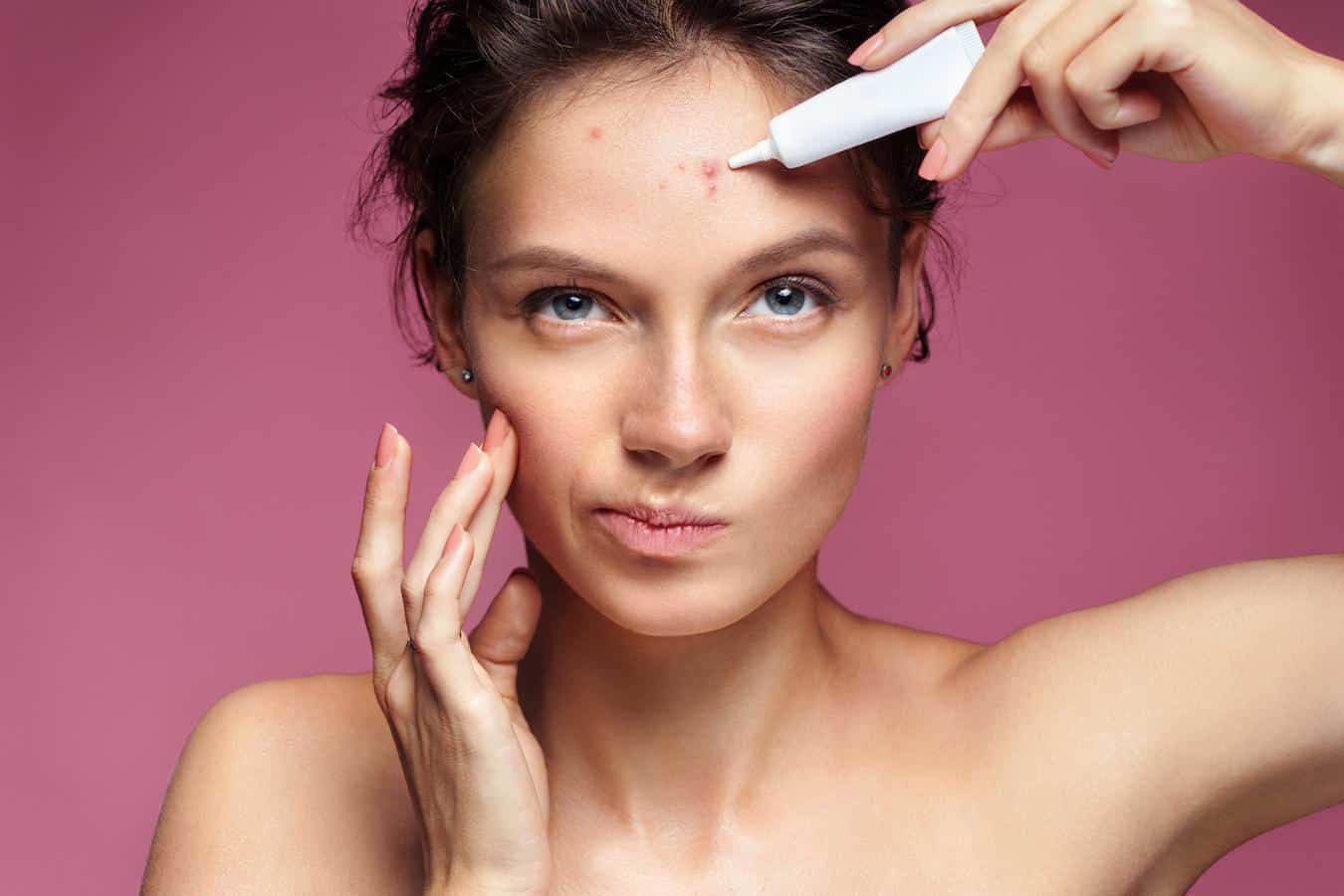
A lot of people who suffer from acne and pimple outbreaks often struggle with oily skin, and could be experiencing an overproduction of sebum, which leads to clogged pores and therefore repeated breakouts. However, pimples and breakouts do not just occur for those with oily skin. On the contrary, they can actually appear on any type of skin, including those with dry skin!
While people with oily skin will benefit from products which help to remove excess sebum and oil, those with dry skin need a completely different strategy to combat pimples, all the while ensuring to avoid drying out their skin any further. The best solution for dry and acne-prone skin alike is to use products which are gentle and hydrating, but at the same time oil-free, so that they won’t clog the pores any further.
This blog will focus both on what skincare routine to follow while being prone to pimples, and having dry skin, as well as offer some great tips on how to reduce pimples, and note which ingredients and products to treat this skin-related problem.
See Related: How to Make Skin Look Younger and Healthier
WHAT SKIN CARE ROUTINE SHOULD I FOLLOW TO REDUCE DRY SKIN AND ACNE?
When you have dry skin, it is not necessary to wash your face twice a day. You want to wash your skin once a day to remove oil and dead skin that gather at the surface. You can wash at nighttime if you prefer, since your face does not get greasy or oily overnight.
Be sure to use a gentle, water-based cleanser that will not dry out your skin, or further strip your face of its moisture. Try to opt for an oil-free cleanser. Even if you have dry skin, oil can still clog your pores and lead to even more pimples.
Also, the water temperature you use to cleanse your skin matters. Hot water can dry your skin out even more, so be sure to use lukewarm water when cleansing.
In addition, try using a cream cleanser, lotion cleanser, or even a gel cleanser that is fragrance free when managing dry skin. It is best not to use a cleanser which is extra foamy, as these are usually designed for the purpose of treating oily skin rather than dry skin, and can therefore strip your dry skin of its natural oils.
If your current cleanser makes your skin feel extremely dry, itchy, or red, stop using it immediately. Constant use of such a cleanser will only continue to irritate, eventually leading to skin flakiness, scaling, rough texture or patches, and irritation.
The best ingredients for treating acne and pimples include benzoyl peroxide and salicylic acid, but they should be in low concentrations in your non foaming cleanser. This is because high concentrations of these ingredients can lead to…you guessed it, more drying.
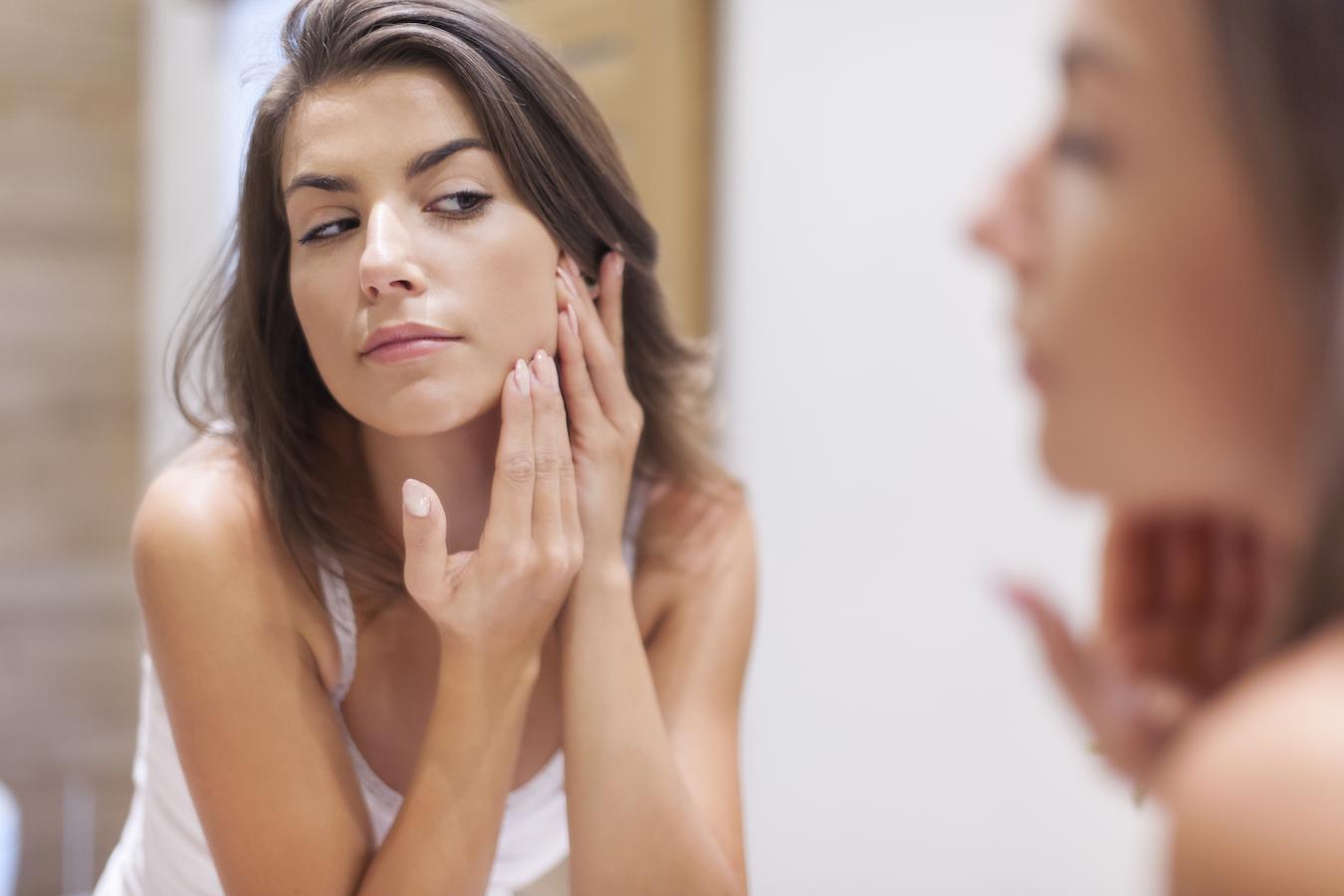
Try to use products that contain an ideal concentration of salicylic acid in your cleanser somewhere between 0.5 to 1 percent. As for benzoyl peroxide, the best concentration would be between 2.5 to 3 percent to prevent over-drying the skin.
A much higher strength would only do the opposite of helping your skin, causing scaling and flakiness. Speak to your dermatologist or seek medical advice for the most accurate information for your unique skin, and the best acne treatment that is right for you.
One ingredient to avoid using if you have dry skin is sulfur. Even though it is very effective in treating pimples, it is drying, and therefore not ideal for those having dry skin.
Other ingredients to look out for in your acne treatments if you have dry skin include denatured alcohol, isopropyl alcohol, menthol, sodium laureth sulfate and ammonium laureth sulfate. Mineral oil should also be avoided in any skin product if you are acne prone, because it often clogs pores, can cause acne and eventually lead to breakouts.
After washing your face, follow up with a gentle toner and an oil-free, water-based moisturizer which ensures hydration. Preferably, use one which is fragrance free as well as contains no alcohol, unless it is cetyl, stearyl, or cetearyl alcohol, which are completely fine when used in skin care products. Afterwards, use an oil-free sunscreen between SPF 30 and SPF 50 to prevent early aging and protect the skin from Ultraviolet (or UV) radiation.
SOME TIPS AND ADVICE ON TREATING ACNE AND DRY SKIN
Try to use low concentrations of drying acne-fighting ingredients
Some ingredients are great for acne, but tend to dry out the skin. For that reason, use a cleanser or toner with low concentrations or strength benzoyl peroxide. Avoid using products which contain sulfur altogether. We’ve detailed why this is important above!
Use a non-comedogenic face moisturizer to avoid clogging pores
Use a water-based moisturizer to hydrate skin rather than one which contains oils. Also, choose a moisturizer which isn’t a heavy emollient to avoid the risk of clogging the pores and cause acne. Instead, try to use skin care that is non-comedogenic. What this basically means is that the product will not block or clog-up your pores.
Use a face moisturizer with skin renewing or rejuvenating properties
It is best to use a face moisturizer that will treat dry skin, renews or rejuvenates the skin, or one which promotes faster cell turnover. This will ensure your skin renews itself to get rid of acne scar tissue, and cell turnover will prevent skin cells that had shed from clogging your pores and leading to more pimples. Make sure your skin feels fresh and hydrated after use.
When you have chosen a face moisturizer, always apply it immediately after cleansing your skin, while it is still moist – so that it locks in the hydration, resulting in better overall absorption. This step is very important, because not moisturizing your dry, acne prone skin – especially after cleansing, results in more sebum production as a compensation for the lack of moisture. Remember: excess sebum clogs up the pores, eventually leading to frustrating skin problems.
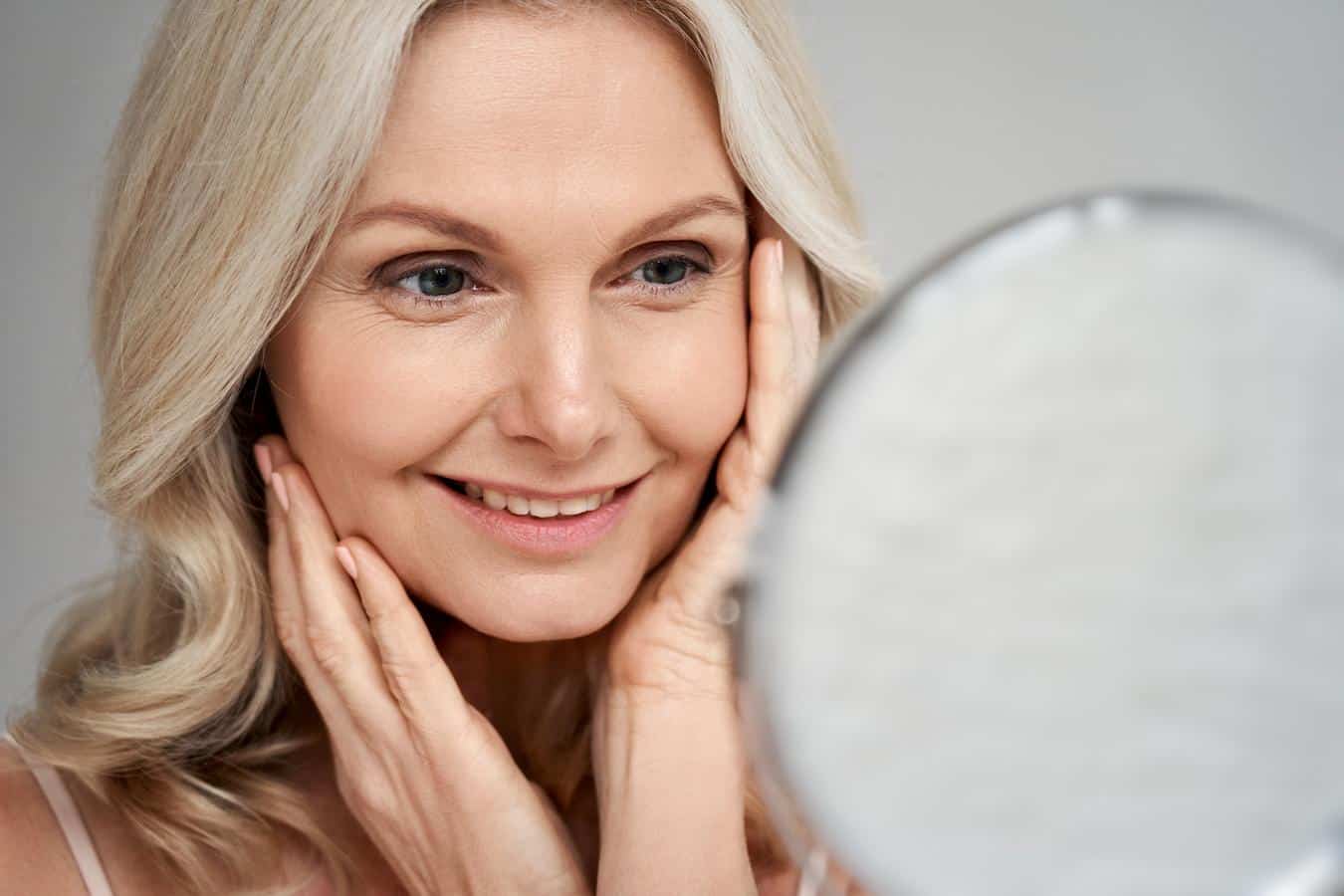
Incorporate AHAs and BHAs into your skin care routine
Use products (such as face cleanser or a toner) with alpha hydroxy acids (AHAs) and beta hydroxy acids (BHAs). These skincare ingredients are extremely effective, and treat acne by helping to soothe inflammation and renew the skin, allowing it to be much smoother, diminishing acne scars, and hyper-pigmentation. AHAs should only be used every 2 to 3 days, whereas BHAs in low concentrations are completely fine to use every day.
Consider applying pimple patches to affected areas
Use the guidance of dermatologists to find what type are best. Using pimple patches is a great way to target individual pimples which are causing you great distress.
Pimple patches work directly on the problem area and can help control acne without drying or stripping your face from moisture. Also, with this method, you will be able to use salicylic acid and benzyl peroxide in even higher concentrations so that it won’t dry out your skin further.
Do not over exfoliate if you have dry skin
Yes, you should get rid of dead skin cells by cleansing your face daily. However, physical exfoliation can be extra harsh on your skin if done too frequently, especially when you suffer from dry skin and acne.
Over-exfoliating your face can actually do much more harm than good in the long run. It may aggravate your acne, cause redness and irritation, and strip your face of even more moisture.
Opt for chemical or natural exfoliators rather than physical ones which often come in the form of harsh scrubs. Scrubs aren’t great for dry skin, as they irritate it and strip it of much-needed moisture and oils.
They often contain large or uneven microbeads, such as walnut or apricot. These can potentially cut or break your skin, creating tiny punctures in it with their sharp edges which will cause redness, bumps and patches.
Use medically reviewed or prescribed retinoids once a week for acne
Retinoids are a miracle when it comes to getting rid of acne and pimples. For those with dry skin, it is recommended to use a retinoid cream for banishing pimples or acne only once a week.
Retinoids work by not only being able to prevent the clogging of pores, but also by helping to unclog your pores from sebum and dead skin cell build-up. Clogged pores lead to pimples and breakouts.
Retinoids not only get rid of pimples on your skin, but will also prevent the formation of new ones. However, when using a retinoid once a week you must also be cautious if you are using alpha hydroxy acids and beta hydroxy acids at the same time as well.
It is recommended to use AHAs and BHAs only once a week when using retinoids. In addition, it is also important to reduce the use of salicylic acid and benzyl hydroxide. Otherwise, it could over-sensitize your skin and as a result cause irritation, excessive dryness, and even redness or inflammation.
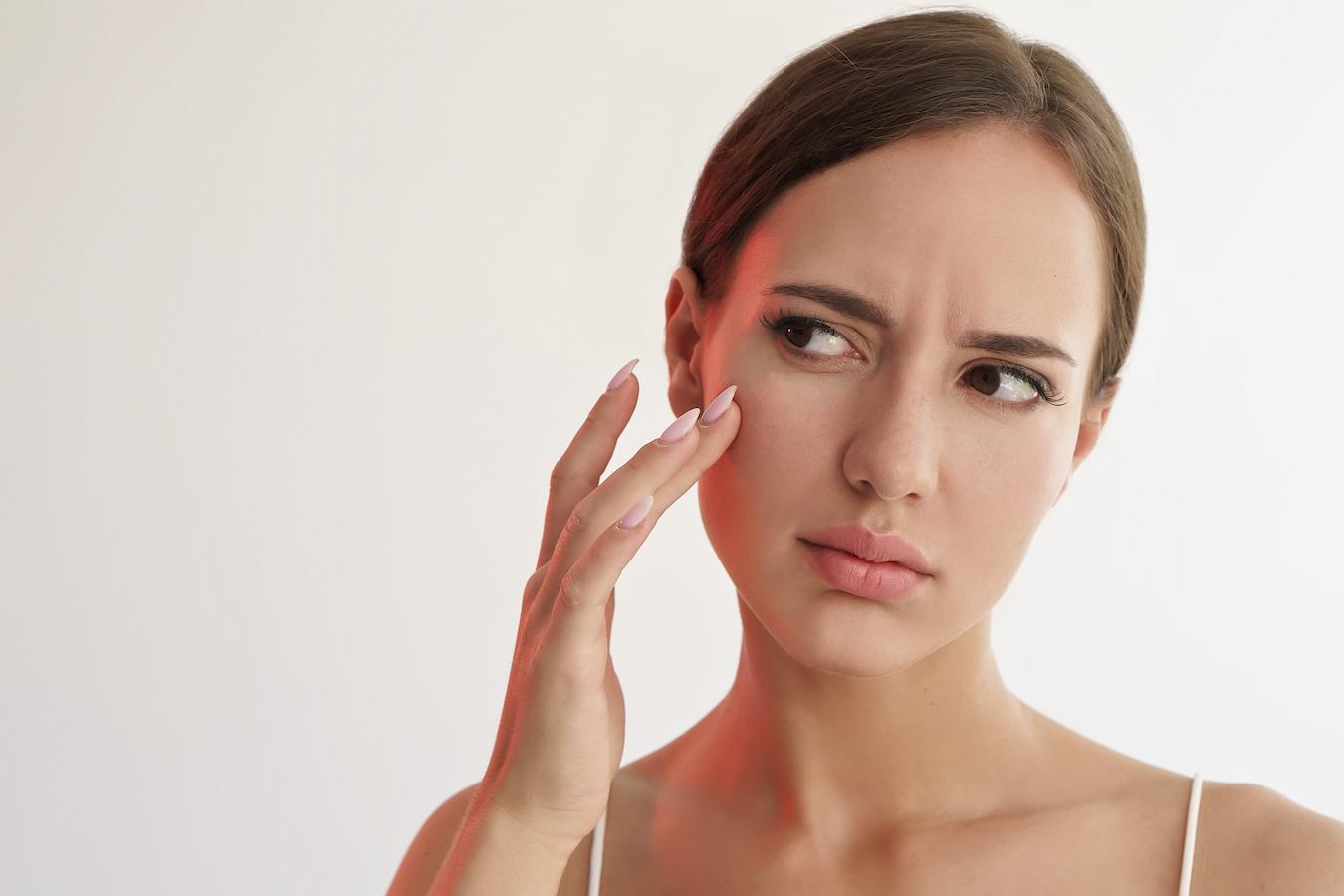
Spironolactone tablets (for women)
You can get an oral prescription medication called Spironolactone, which is extremely effective in reducing pimples in girls and women. In addition to that, Spironolactone is a medication which is said not to dry skin, and therefore is great to use when trying to reduce pimples whilst being prone to dryness. Talk to your dermatologist for more information.
Use Green Tea as a natural acne solution
Drinking 2 or 3 cups of green tea may help prevent breakouts and pimples in some people, as it contains a great deal of antioxidants called catechins, with its main one being EGCG. This compound is not only anti-inflammatory, but also helps unclog pores.
Drinking green tea can also help reduce the toxins in your body. It is a non-drying remedy, which means you can both drink it and apply it to the skin, or to affected areas. However, be sure that you are going for a high quality organic green tea to be able to see better results.
You can also find many green tea-based skincare products available including cleansers, toners, moisturizers and serums.
Bonus: Why Is The Skin Under My Lips Dry?
Use products that contain lactic acid
Lactic acid is yet another highly efficient ingredient to incorporate into your skincare routine if you are prone to acne and breakouts. Additionally, lactic acid helps to hydrate and moisturize dry skin, helping improve and preserving the skin’s natural moisture. These properties make lactic acid one of the best solutions out there both for reducing pimples and at the same time reducing the dryness of your skin.
Lactic acid is actually an alpha hydroxy acid, but unlike other AHAs, it is great for sensitive skin and won’t irritate dry or itchy skin. Not only does it reduce pimples on your skin, but it also encourages cell turnover and renews, getting rid of hyper-pigmentation, signs of aging, acne scars, as well as rough texture.
5% Lactic acid is fine to use once a day, while 10% can be used once a day or every other day. If your skin is sensitive, use a 5% lactic acid solution only once a week or twice a week.
Talk to your doctor about acne medication such as Doxycyline and Minocycline
Another medication for acne which you can get prescribed is a certain antibiotic such as Doxycyline or minocycline which will not strip your face of dryness like some topical products. These help with inflammation, redness, and prevent acne and the breaking out of pimples by getting rid of the bacteria which is the main cause of it. When using any antibiotics or medication for acne, do not use a medicated cleanser to wash your face as well with it.
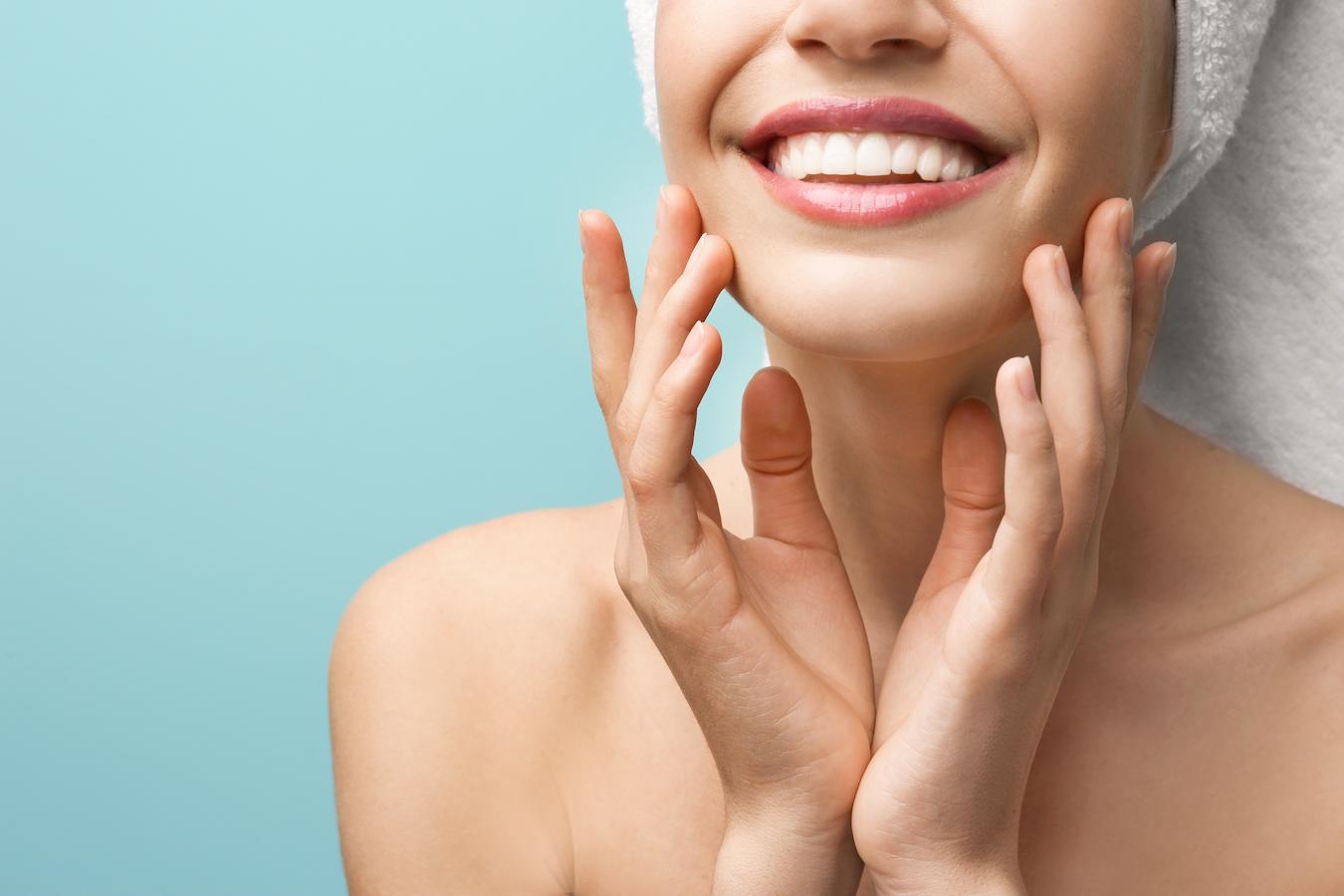
Always use sunscreen
It is of utmost importance to use a sunscreen all year round, even on sunless or cloudy days. Not only does wearing sunscreen on a daily basis protect your skin from the damage caused by exposure to UV rays, but it prevents you from getting more pimples caused by inflammation. Inflammation can be caused by UV rays, especially on very sunny days, as well as heat, and even humidity, which can cause more pimples to appear.
To avoid clogging your pores, use a sunscreen that is water-based, light-weight and does not contain any oil. Also, check to ensure it is non-comedogenic, and use one with ingredients such as titanium dioxide or zinc oxide. These are non-irritating, gentle, natural, and will therefore work great for those with dry skin.
IN CONCLUSION
There’s no question that skincare is important. Not just for preventing acne and pimples, but for your overall wellbeing.
We just hope that you have found some helpful remedies and solutions to your dry skin and acne, and wish you the best of luck on your skin care journey? Check out our blogs for more helpful skin care and beauty tips.
Keep Reading: What Are Peptides In Skin Care?
—
For over 60 years, Viviane Woodard has represented “The Purity of Skincare”. We are the leading beauty brand for skin care products and promote the importance of good skin hydration. Follow us on Facebook, Instagram, Twitter, and Pinterest for skin care tips, product discounts and more.
